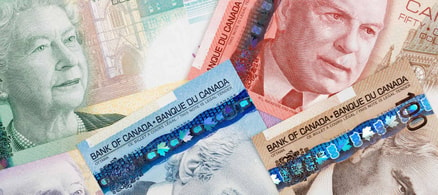Take account of your accounts
The three key factors you need to look at when examining your debt are your income, your expenses, and your debt. Once you look at these, you can start creating a strategy to get you out of debt.
Taylor notes that by looking at these factors, you might discover that you can take steps on your own to get out of debt.
If your income is lower or equal to your expenses, then you don’t have any room to pay off your debt. You will need to seriously consider a new job, and a side hustle while you look for one. While your income remains low you will need to be strict with any non-essential spending and ensure that the money you’re bringing in is being allocated to necessities such as rent.
If you are in a situation where your income allows you some room for non-essential spending, you may still feel like it’s difficult to set money aside to clear off debt.
However, small changes to your daily habits can have a big impact. If you get takeout a few times a week you can cut it back to a few times a month and put the money you would have spent straight to your debt. These small steps can quickly lead to hundreds of dollars saved over the course of a few months. The important part is to follow through and apply those newfound savings to your debt.
Taylor notes that economic times are tough, though, and even affording essential expenses like groceries can be tough.
If you aren’t able to forge a path out of debt on your own because the interest rates are so high, or your inability to service the debt based on increasing gas and food costs, Taylor says that's when you need to seek help.
The strategy you use to get out of your debt will depend on your particular situation.
“Maybe there's a house that [you] can refinance, maybe bankruptcy, maybe there's a debt consolidation plan,” said Taylor.
“It all just depends on what the person's particular circumstances are like.”
Maximize Your Tax Refund with TurboTax Canada!
Simplify tax season with this user-friendly software. Get step-by-step guidance, maximize deductions, and file with confidence. Trusted by millions, TurboTax Canada ensures accuracy and peace of mind. Start your taxes today and get the refund you deserve
Get the tax refund you deserveKnow your spending type
Before you can come up with a plan of action, it is important to understand how your personality impacts your relationship with money and debt.
For example, if you’re generally a cautious person, you may have little debt to begin with. You’ll also be focused on getting rid of your debt as quickly as possible.
If you’re more of a risk-taker, you may find yourself willing to assume more debt — from investments or other expenses — with the potential of greater payoff. However, that tendency can also put you at higher risk of being in financial trouble.
Emotional spending is also a common habit that can be hard to control. Retail therapy, or spending money on yourself, can provide quick hits of endorphins that provide a pleasurable fix. But making purchases as a way to make you feel good can also have long-term financial repercussions.
If you’re an emotional spender, figuring out the source of your spending issues can help you along your way. Talking with a financial counsellor can help you through this, notes Taylor.
“Once we can figure out where that emotional spending derives from,” said Taylor, “then we can speak to whatever those issues are.” This will enable you to treat the cause of the problem, rather than simply put a Band-Aid on the symptom.
When you tackle your financial problems from the root, you create habits that prevent them from growing again, and therefore have a better outcome in the long term.
Envision your future
“Don't be too hard on yourself,” said Taylor, “you can't drive a car successfully if you're looking back the whole time.”
“You need to focus on what's ahead of you.”
Creating a long-term goal creates an end game and can “help you stay focused and motivated day to day.”
Envision what your life is going to be when you no longer have that debt hanging over you, and this will inform how you live your life day-to-day. Not only will you find yourself making progress to your financial goals, but you might also find yourself living a happier life altogether.
For instance, if you envision yourself eliminating $500 of your debt in one month, this gives you a tangible objective to work toward. By identifying a goal, and recognizing how you’ll feel when you accomplish this, you fuel yourself to achieve your objective.
If you do set a personal goal, though, be sure that you recognize every step you take toward making that a reality. If you don’t meet your goal, acknowledge the progress that you make and continue to build on your successes. If you only pay off $300, realize that you were still successful in paying off more debt.
It’s this clear vision that will let you change your habits, curb any spending that has created debt and let you achieve your financial goal. Instead of looking at your bank account and seeing the debt you have, imagine what it’ll look like once you’ve paid that off.
Grow Your Savings Effortlessly with Moka
Automate your savings with every purchase and watch your money multiply. Moka rounds up your transactions and invests the spare change. Start building wealth effortlessly today. Join thousands of Canadians embracing financial freedom with Moka
Sign up nowOut of the blue (Monday) and into the black
Getting over the hump of Blue Monday is a challenge. With the cold, dark atmosphere, you might feel particularly drained as you look at your debt load.
But with every winter comes a new spring.
Similar to having a long-term goal, setting short-term objectives lets you get through the grind of darker days with greater ease.
In order to climb out of your debt, you could try either the debt snowball or the avalanche method.
The debt snowball method involves you paying off your smallest debt first, while only paying off the minimum monthly amount on your other debts. Once the smallest is cleared out, you start paying off the next. Gradually, all your debts will clear out.
The debt avalanche method is when you tackle the largest amount first, and pay only the minimum amounts on the others. Generally, this lets you clear out the higher interest loans first.
It may be difficult to see the progress of your efforts if you use the avalanche method, since it’ll take you more time to carve away the principal of your bigger debts. Despite this, it has the benefit of letting you clear all your debts faster, as you will ultimately pay less in interest.
You might create a consolidation plan with a company like Credit Canada, notes Taylor. You might go to your bank to get a lower interest loan.
Your financial debt doesn’t have to be crippling, and Blue Monday doesn’t have to feel as heavy as it might. Assess your financial situation, and look at your ability to service what you owe on your own.
Devise a plan — whether independently or with the aid of a counsellor — and stick with it.
Sponsored
Trade Smarter, Today
With CIBC Investor's Edge, kick-start your portfolio with 100 free trades and up to $4,500 cash back.







